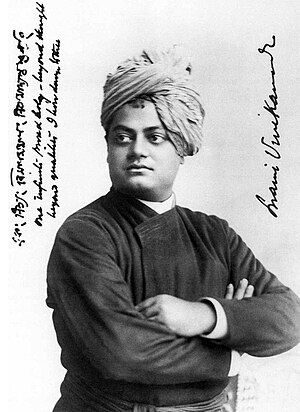BICAMERAL LEGISLATURE
Art 79 … There shall be a Parliament of the union and that it is to consist of the Prez, two Houses known as the Council of States (Rajya Sabha) & the House of the People (Lok Sabha). The Prez. Does not sit or participate in the daily proceedings in the House. (Certain functions summoning the Houses, proroguing them, dissolving the Lok Sabha, addressing the Houses.)
The Rajya Sabha was first constituted on April 3, 1952. The Lok Sabha held its first sitting on May13, 1952 after the first general election in the winter of 1951-52.
Composition:
The States In India Are Represented In The Rajya Sabha On The Basis Of Population.
| LOK SABHA | RAJYA SABHA |
| COMPOSITION | |
| Art 81…Lower House consists of not more than 530 representatives of the states; not more than 20 representatives Union Territories; not more than 2 members of the Anglo- Indian community , nominated by the President . Direct Election – on adult suffrage. in the case of Sikkim –its sole representatives in the Parliament is elected by the members of its Legislature Assembly[Art371F(e)] | Art 80…Council of States is composed of not more than 12 members by the Prez. from amongst persons having “special knowledge or practical experience in literature, science, art and social science “ not more than 238 representatives of the states & the Union Territories elected by the method of indirect election. The representatives of each state are elected by the elected members of the Legislature Assembly of the State in accordance with the system of proportional representation by means of the single transferable vote. |
| DURATION | |
| Each Lok Sabha is formed for a five-year term, after which it is automatically dissolved, unless extended by a Proclamation of Emergency, which may extend the term in one-year increments. The 15th Lok Sabha was formed in May 2009. | Terms of office are for six years, with one third of the The Rajya Sabha meets in continuous session and, unlike the lower house of parliament, the Lok Sabha, are not subject to dissolution members facing re-election every two years. |
| QUALIFICATIONS | |
| Membership of the Lok Sabha requires that the person must be a citizen of India, aged 25 or over, mentally sound, should not be bankrupt and has no criminal procedures against him/her. For reserved seats, one should be member of the scheduled castes and/or tribes. | To become a member of the Rajya Sabha, a person must be a citizen of India, not less than 30 years of age. He or she should be mentally sound and should not be bankrupt. He or she must also declare in an affidavit to be free from criminal procedures. For reserved seats, it is a requirement to be member of a scheduled caste or tribe, or both. The President of India can also appoint one. |
Art89…. The Vice-President of India (currently, Hamid Ansari) is the ex-officio Chairman of the Rajya Sabha. The Deputy Chairman of the Rajya Sabha, who is elected from amongst its members, takes care of the day-to-day matters of the house in the absence of the Chairman
SPEAKER OF THE LOK SABHA: is the presiding officer of the lower house of Parliament of India. The speaker is elected in the very first meeting of the Lok Sabha after the General elections for a term of 5 years from amongst the members of the Lok Sabha. He is supposed to resign from his original party because as a speaker, he has to remain impartial.
Powers of The and Functions Speaker
The Speaker presides over the sessions of the Lok Sabha and conducts the business in the house. He decides whether a bill is a money bill or a non-money bill. He maintains discipline and decorum in the house and can punish a member for his unruly behavior by suspending him. He permits the moving of various kinds of motions and resolutions like the motion of no confidence, motion of adjournment motion of censure and calling attention notice. The Speaker decides on the agenda to be taken up for discussion during the meeting. The President fixes the date of election of speaker.
DEPUTY SPEAKER OF LOK SABHA
The Deputy Speaker of the Lok Sabha is the vice-presiding officer of the Lok Sabha, the lower house of Parliament of India. He acts as the presiding officer in case of leave or absence caused by death or illness of the Speaker of the Lok Sabha.
The Deputy Speaker is elected in the very first meeting of the Lok Sabha after the General elections for a term of 5 years from amongst the members of the Lok Sabha. He is supposed to resign from his original party because as a Deputy Speaker, he has to remain impartial.
Powers of The and Functions Deputy Speaker
In case of the absence of the Speaker, the Deputy Speaker presides over the sessions of the Lok Sabha and conducts the business in the house. He decides whether a bill is a money bill or a non-money bill. He maintains discipline and decorum in the house and can punish a member for his unruly behavior by suspending him. He permits the moving of various kinds of motions and resolutions like the motion of no confidence, motion of adjournment, motion of censure and calling attention notice. The Deputy Speaker decides on the agenda to be taken up for discussion during the meeting.
SECRETARY GENERAL
The secretary general of the Lok Sabha is not connected with politics. The speaker chooses him and appoints him from among those who have served Parliament in various capacities in the Secretariat. He remains in office until the age of retirement, at present fixed at 60 years. His action cannot be discussed in nor outside the House; answerable only to the speaker; adviser to the speaker. He is permanent officer forming a link between the changing composition of the different Houses and speakers.














